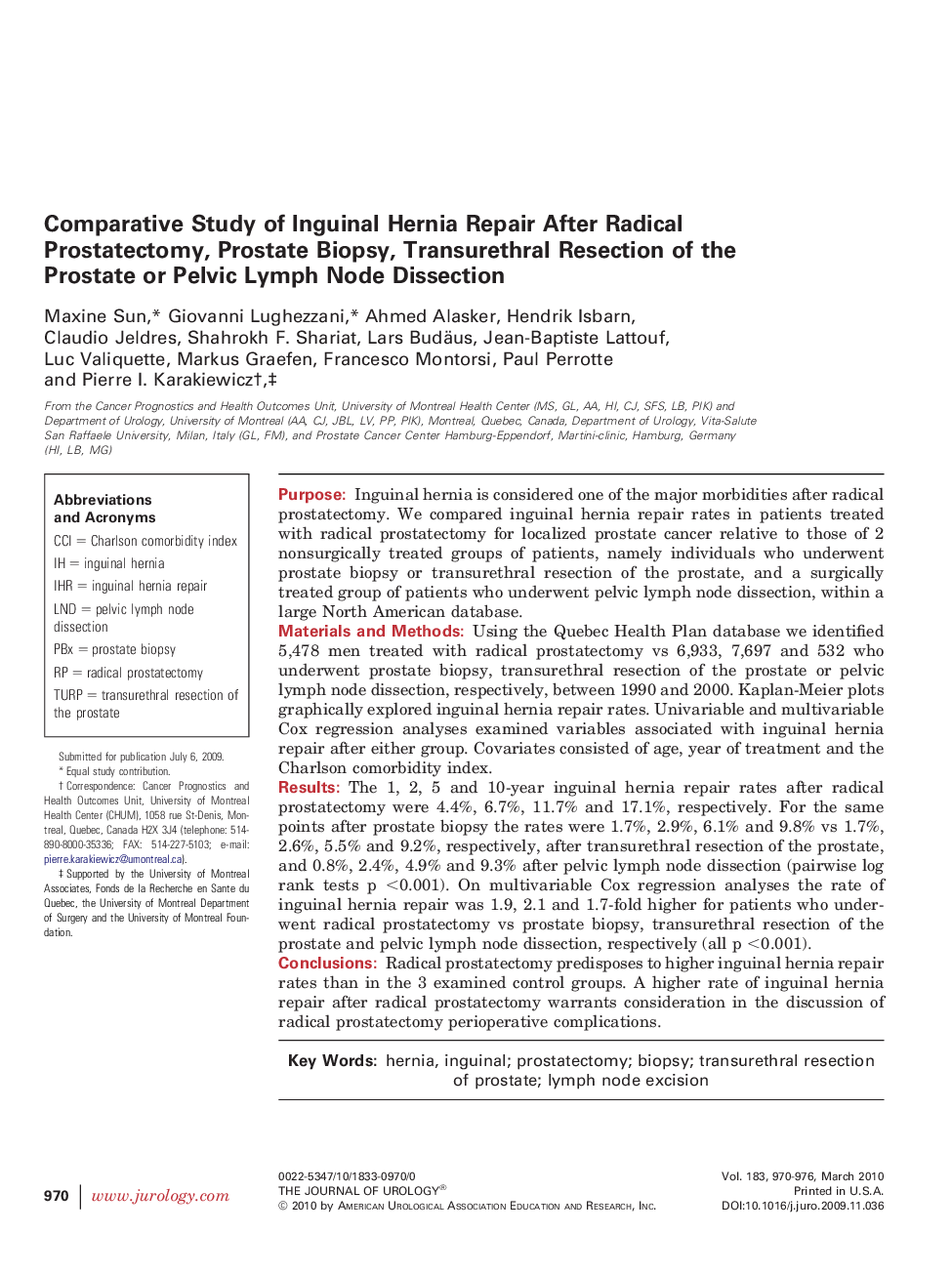| Article ID | Journal | Published Year | Pages | File Type |
|---|---|---|---|---|
| 3874782 | The Journal of Urology | 2010 | 7 Pages |
PurposeInguinal hernia is considered one of the major morbidities after radical prostatectomy. We compared inguinal hernia repair rates in patients treated with radical prostatectomy for localized prostate cancer relative to those of 2 nonsurgically treated groups of patients, namely individuals who underwent prostate biopsy or transurethral resection of the prostate, and a surgically treated group of patients who underwent pelvic lymph node dissection, within a large North American database.Materials and MethodsUsing the Quebec Health Plan database we identified 5,478 men treated with radical prostatectomy vs 6,933, 7,697 and 532 who underwent prostate biopsy, transurethral resection of the prostate or pelvic lymph node dissection, respectively, between 1990 and 2000. Kaplan-Meier plots graphically explored inguinal hernia repair rates. Univariable and multivariable Cox regression analyses examined variables associated with inguinal hernia repair after either group. Covariates consisted of age, year of treatment and the Charlson comorbidity index.ResultsThe 1, 2, 5 and 10-year inguinal hernia repair rates after radical prostatectomy were 4.4%, 6.7%, 11.7% and 17.1%, respectively. For the same points after prostate biopsy the rates were 1.7%, 2.9%, 6.1% and 9.8% vs 1.7%, 2.6%, 5.5% and 9.2%, respectively, after transurethral resection of the prostate, and 0.8%, 2.4%, 4.9% and 9.3% after pelvic lymph node dissection (pairwise log rank tests p <0.001). On multivariable Cox regression analyses the rate of inguinal hernia repair was 1.9, 2.1 and 1.7-fold higher for patients who underwent radical prostatectomy vs prostate biopsy, transurethral resection of the prostate and pelvic lymph node dissection, respectively (all p <0.001).ConclusionsRadical prostatectomy predisposes to higher inguinal hernia repair rates than in the 3 examined control groups. A higher rate of inguinal hernia repair after radical prostatectomy warrants consideration in the discussion of radical prostatectomy perioperative complications.
